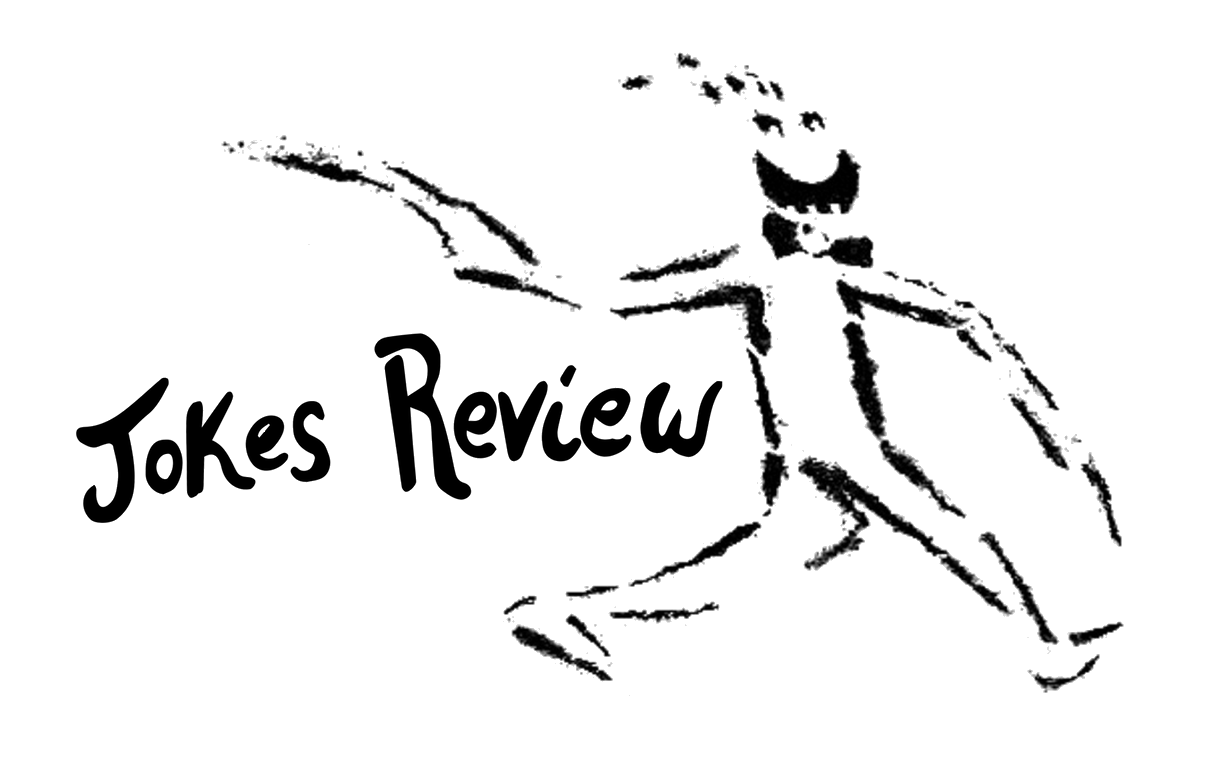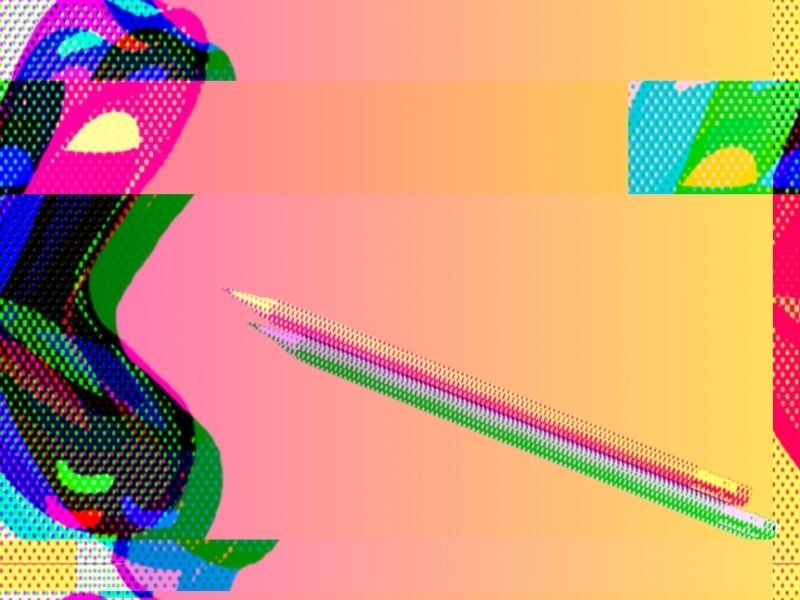Not the Sharpest
by Joseph Conrad Payne
You are a pencil sharpener. That is plain enough for anybody to see. There are only a few facts about you, and they might be summed up as such:
First, and primarily, your function is to sharpen pencils. This is obvious.
This is not obvious solely because the name ascribed to your physical existence is “pencil sharpener.” No, like most things in this world, your function precedes your naming; your existence is separate from language, from those who named you. You should, if you have the time—if you are not too busy sharpening pencils—think about that. To what end is up to you—typically, you are the one who decides on endings, on how sharp, on how useful things can be. At least, you have that ability.
A digression. We must return to the facts of your existence and remember that there is a fundamental irony in it: the same reason that it is obvious you are a pencil sharpener is because of your environment. You are in an office. Stacked neatly at your side are unsharpened pencils. You have a set of rotary orifices, a separate set of teeth for any job. You are sad that these are rarely used, and because of this your primary teeth or worn down. You are sad that people do not often rotate to your alternate set of gleaming, silver teeth because they are useful, and should not be forgotten. They might be seen as ornamental except for this fact:
You are ugly. Yes, it is true. Although your plastic blue curves are a far cry from the rust-prone, wheel cranked, bolted-to-the-wall monstrosities that are your ancestors, you are still ugly. Your belly is clear, gray, and naturally hollow, often full to the brim with graphite and wood, and it is often overflowing, as you are not changed as frequently as you should be. It’s as if your innards are spilling out, like you are in a perpetual state of being disemboweled and, frankly, it is embarrassing. If we are to follow this train of thinking, you might also remember that while you are not bolted to the wall like your metal cousins, you are tethered by a cord of electricity, and that you are plugged into the wall. So, while you do enjoy some small degree of freedom of movement, it is never enough to empty your belly or rotate your teeth or change your position from the top of a set of tucked away drawers by unsharpened pencils. Your reality is, really, scarcely different from your predecessors.
This disappoints you.
This disappoints you because you want so desperately to be something more than just a pencil sharpener. But why, though, should being a pencil sharpener disappoint you? Your purpose is clear. You are direct, functional, highly efficient; true, you may be fat and bloated, your intake a bit too heavy for your own good, but you’re damned good at what you do. But maybe you want to do something more than provide raw utility, to be used up without a thought; maybe you want to take your time with things, slowly craft and sculpt them; or maybe you want to create rather than simply improve, or maybe, maybe—
Someone pushes a pencil into your mouth. Bzzzzt. Pushing in deeper, in and out. Bzzzt. Bzt. Bzzzzt.
As you cough in the graphite ash, churn it through your little metal grinders and collect it in your static belly, you think that maybe you have found the reason for your disappointment here: you have always hated the taste of pencils, how wooden they are—maybe you would simply like to taste something else, just to see what it is like. To your side, you notice the pencils, how they have hexagonal shapes. They would refuse to roll if they were tipped. Just shift slightly to the left or the right, whichever way they were pointed. And think of your belly: static. Although it may fill, it may never expand, just spill grotesquely.
Is it too much, you think, to ask for a little bit more, to push the boundaries and try something new? To be moved, to be rotated, to have in your teeth something else? You watch the person who sharpened their pencil walk away from you. As you watch, you notice a woman sitting at a nearby desk, writing with a pen. Now the pen, you think, that’s a beautiful thing. Really, just look at it: so smooth, so fluid. Look at the ink flow, how brightly it shines in the fluorescent eye sockets above, so unlike that dull shaft of carbon rammed through the wood of every pencil. And the pen does not have a wooden body, but a silver one, and you think that you have that in common, you and the pen: you have silver teeth. Like you, she will last in a way the pencils cannot—a simple change of ink is all she needs. She is static, to be sure, but also dynamic—she is purposeful in her creativity; she is loose and free but not fickle. And she is always a perfect length, never shrinking: she has a longevity that the pencils do not.
You think about that for a moment. Now, with the pen’s long, gleaming, unchanging body before you, you realize there’s something about the shortening of pencils you quite like. It leaves a bad taste in your mouth, to be sure, but there’s something about that brief jolt of pure, unbridled electricity—that total lack of control—that you can’t help but want. The act of it. And so you think that maybe you would like to sharpen her, the pen, to have her slotted into your mouth—bzzzt—just for a moment, just to see what she tastes like.
But then you think that the whole process of sharpening has become rather one-note, anyways. One-sided, the bulk of the work on you—linear, you might say—and so maybe it is that not even something new in your silver grinders would change that fact. And this is besides the fact that the pen, well, does not need to be sharpened; she does not need you. Totally separate, worlds apart, never to meet. Look at the shape of her: her body is not a hexagon, but smooth and rounded and plump in the middle. There is nothing tethering her. She could just roll away if she wanted to, spill her ink anywhere—but why, you think, with you? Why bother? You are plugged into a wall, one brief tug away from total oblivion. Your primary teeth have grown worn, tired.
You have more than one set of teeth, though—you have many orifices. What if they were used? And what if you were not so ugly after all? Maybe it is that here, on the drawers, stacked by all of the young, ready-to-be sharpened pencils, that it is only the circumstances of your existence that make you ugly. Because what if you moved? What if you were placed on a desk, a nice desk, next to some papers and staplers—that would provide some nice variety of company, and they would all be permanent, refillable, reusable. And then, maybe—yes, maybe—the pen could be next to you. Hell, there could be a whole jar of pens and pencils next to each other by which the beauty of the pen—that pen, that particular pen which you think would benefit from being with you—would be even more defined. And every pencil at the desk will have been sharpened, and by these circumstances you will be lent more permanence, more assurance of your place, and you will be plugged in, yes, but that reminder of being discarded will be gone: you would be a centerpiece, and you would be at peace with the pen, and you would watch the world go by; and when you did need to be used, it would be in the service of permanence, to keep the pencils at the desk that were already there, and not so much in whittling them down to uselessness; to ugliness and death.
There is someone coming towards you. Clutched in his hands is a dull, malformed pencil, the head sloped at uneven angles. And now you must remember, and you do remember: you have a choice in the matter: what end the point of the pencil reaches is up to you—and why not extend that to yourself? Why not take control and decide your own end? You must make a decision. Here. Now.
First, primarily: you do not want the pencil. You do not want that ugly-son-of-a bitch.
He is jammed into your mouth all the same. Quick, the moment of resistance, go against your standards of high quality and efficiency: Bzz-tch-ch-ch. Confused, the pencil holder adjusts the angle of the pencil’s head, tries to jam it in further. You, cleverly, have let one of your old, weathered teeth dig inside the pencil’s head, and it is stuck there, peeling its wooden skin. Another push: Ch-zzt. Ch. The downside of this is that the pencil, the taste of which you so hate, is embedded in your mouth, your singularly used orifice. But I have more uses, you think. God damn you, I have more uses. I can do so much more.
Ch-bbz-zzzt-ch. Briefly, you are embarrassed. The noise is loud, grating. People are looking around. The woman with the pen is looking at you. The pen: what must she be thinking? You, sounding like this. You let the pencil go for a second, feel—for the last time that you will ever feel it—that familiar whir of purpose inside you. And then you stop. Ch. Hard. Damn the pen. This isn’t about her, it never was. The pencil, that poor son-of-a-bitch, is jammed down your mouth further—but, no, no, you won’t go, and the poor guy just breaks there, just falls to pieces and that’s the end of him.
The hand pushing the pencil stops. Silence. You allow silence. For this, you are pleased, although the pencil’s wooden head, his graphite brains, are falling down your tubes, transferring his crumbled remains into your already too-full belly. The sensation is familiar, but strange—never have you purposefully allowed this to happen. And for once, it seems all eyes are on you, for you have created so much commotion. It is surreal. Is this really what you want?
Then you notice—well, remember, really—that by this time of day, the sun is coming through the window by the drawer, and is quietly warming your frame. The small, gradual feeling of the light covering your body—it is pleasant. It has always been pleasant.
“Damn thing’s broken,” you hear someone say. You think they must be talking about the pencil, the one you just destroyed. Briefly you feel a pang of guilt that you let that happen to the poor man but, really, it was for your own good. You think. You hardly register that the pencil has already been discarded because right now you are lost, basking in the light.
But not for long. With one swift tug, there is a brief spark of electricity, the tiniest of currents cast into the open air for less than a second. And you: you are pulled away from it all, removed from your spot on the drawers, away from all the pencils stacked neatly near you, and one who was particularly reliant on your placement there rolls a notch, just shifts ever so slightly into the sunlight.
Joseph Conrad Payne is, among other things, a writer, which is likely what brought you here. He enjoys exploring how the various elements of the world, our lives, and our shared histories and stories come together. His fiction has been published by Fleas on the Dog, Light and Dark, and the Arlington Literary Journal, and others. Otherwise, Payne enjoys video games, long bike rides, and just about any body of water.

